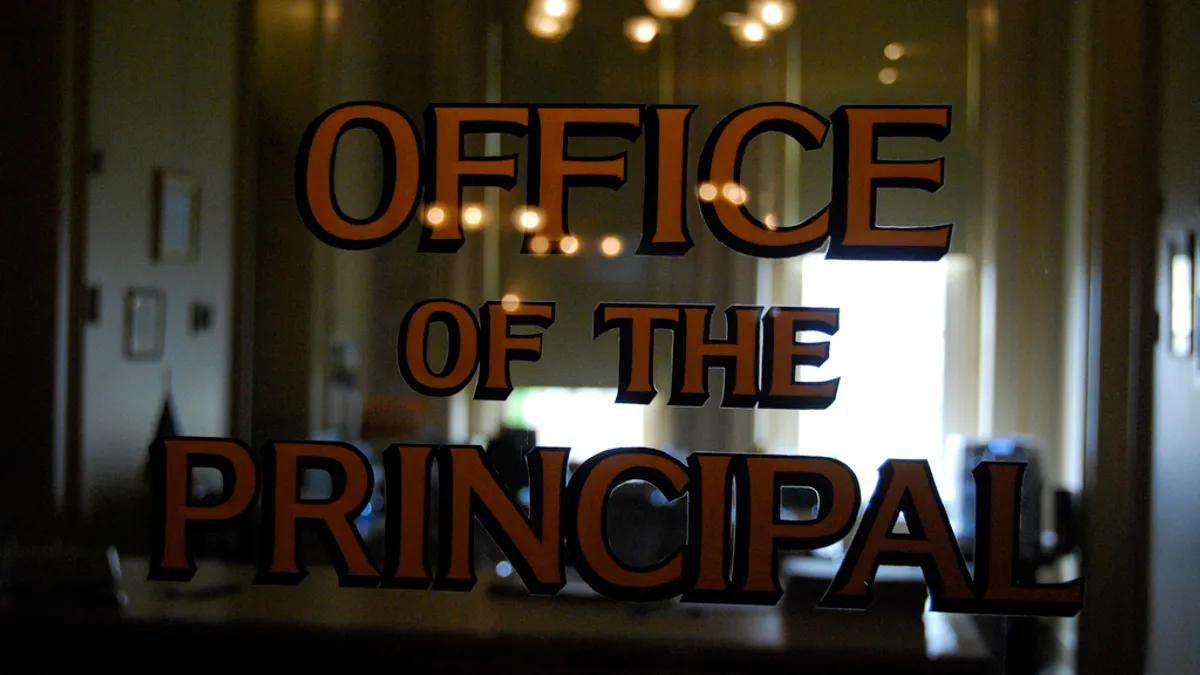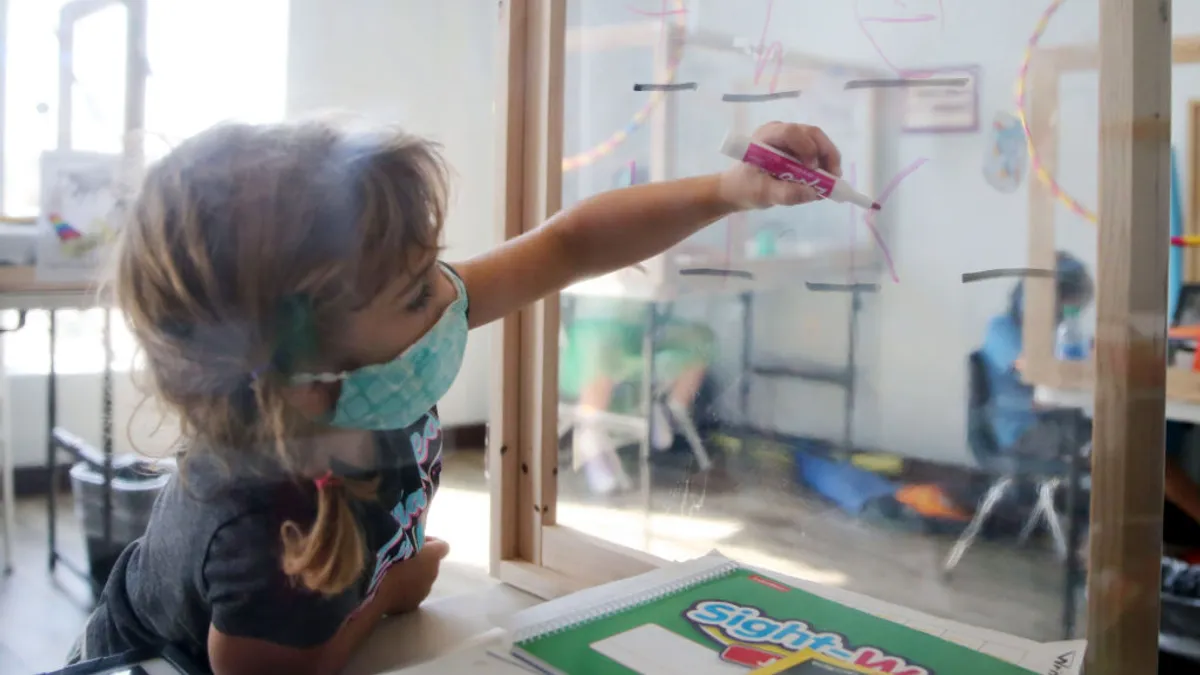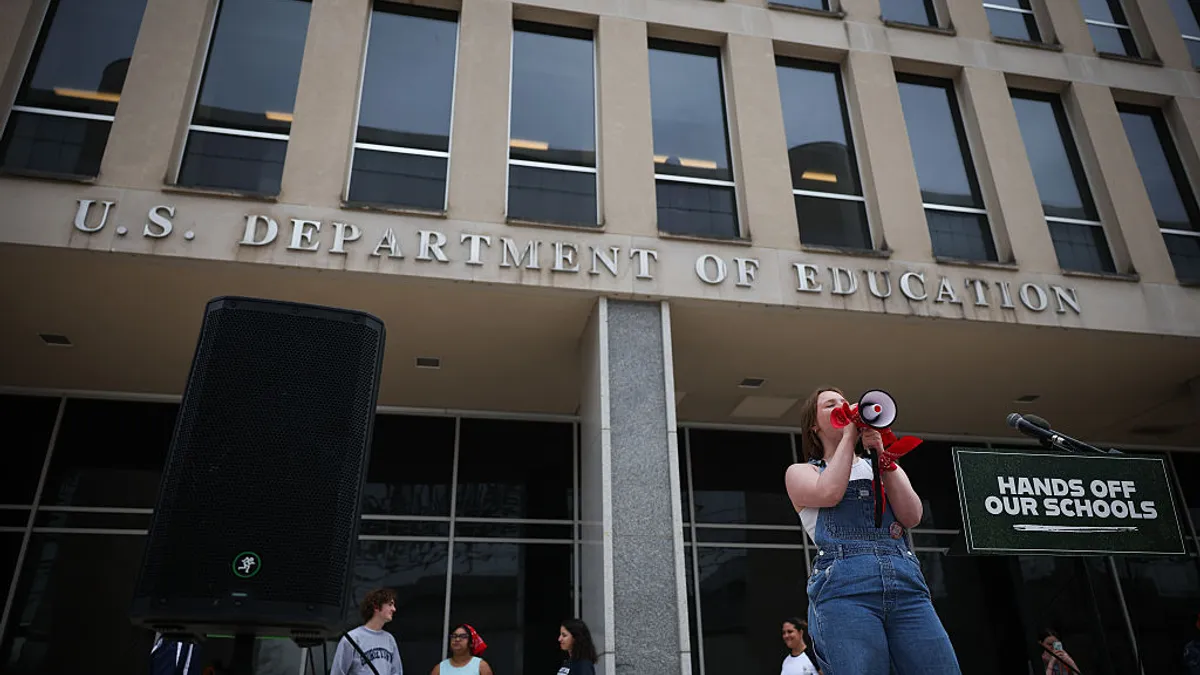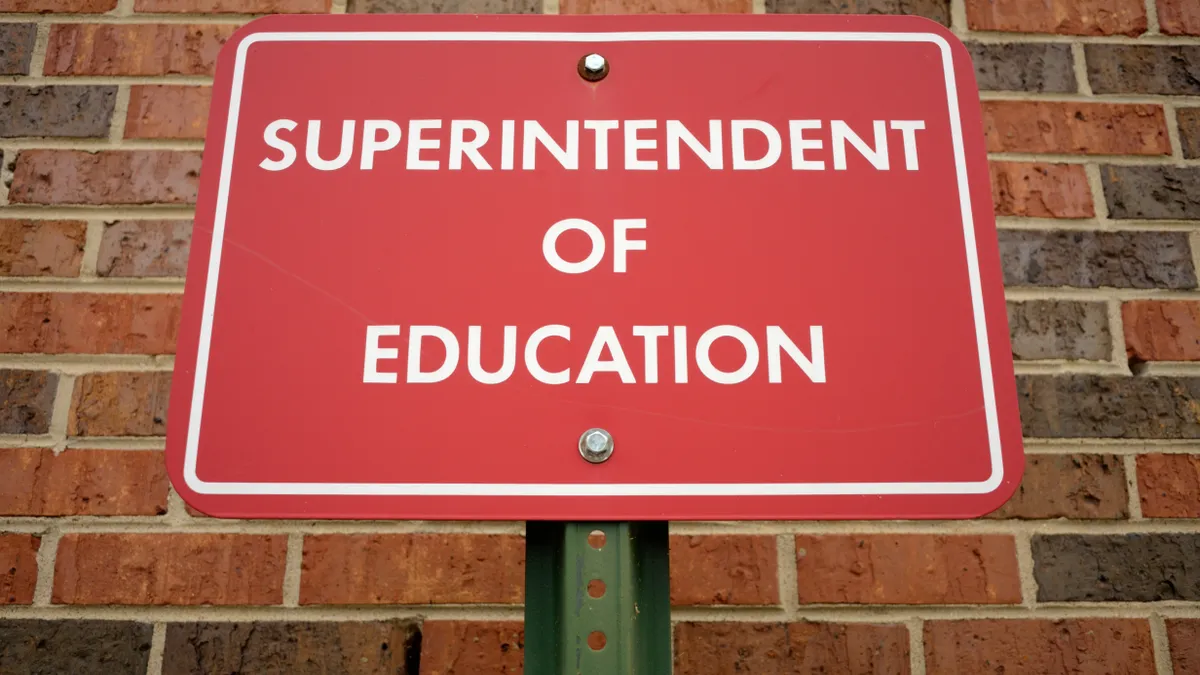Editor’s note: This story is part of a series on the trends that will shape K-12 in 2021. You can find all the articles on our trendline.
Over the past year, the ongoing novel coronavirus pandemic and the nation's reckoning with systemic racism have presented school leaders a bevy of challenges to contend with. Roughly two weeks into a new year, those challenges persist as principals seek to maintain positive school culture while keeping students and educators alike engaged in learning environments that remain largely remote due to ongoing school closures.
Though far from ideal, it's the kind of scenario that hones and truly defines strong leadership as principals navigate pain points and develop best practices to overcome the challenges facing their school communities. As we move into 2021, these four principals are leaders you'll want to keep an eye on.
Wanda Tharpe — Dacusville Middle School in Easley, South Carolina
Wanda Tharpe joined Dacusville Middle School in the 2013-14 school year, bringing with her experience as an administrator for six years and a decade of experience as a social studies teacher, according to South Carolina's local news coverage. She leads in a tight-knit school community, where many of her staff previously attended the school as children.
However, being the leader of a small rural school, one with only 330 students spread across grades 6-8, comes with a number of challenges. While rural communities often have difficulty accessing things readily available to urban or suburban communities like internet and CTE classes, Tharpe has worked to expand online course options for her middle school students.
By contracting with the online learning company SC Virtual, a free state-sponsored online course program for students in grades 7-12, Dacusville Middle School was able to provide business elective courses. The school, which has half of its student population on free or reduced-priced lunches, expanded the program so that it now offers more than a dozen electives including languages, personal finance, keyboarding, and more.
The virtual classes not only offer high school credits to students in 7th and 8th grades so they often enter high school ahead of their peers, but also allows them to personalize their learning. "Being in a small school and being able to provide opportunities for our students and allowing them to personalize their learning is great," Tharpe told K-12 Dive.
What's more, the previously established program also meant the small rural middle school was ahead of the curve when it came to COVID-19 school closures.
Quentin Lee — Childersburg High School in Childersburg, Alabama
While remaining focused on meeting students' learning and personal needs has been a core focus for school and district leaders during the novel coronavirus pandemic, a little levity can also go a long way to lift spirits and boost school culture in trying times. For Quentin Lee of Childersburg High School, that meant taking time out of the day to share his feelings with the school community through song.
One such video begins with Lee, a former band director, seated behind his desk with a keyboard, telling viewers he wants to sing a song that he hopes brings them hope, joy and "lets you know how I've been feeling during this COVID-19 pandemic." He then plays several notes before letting out a cathartic scream that his peers and students can likely relate to.
Perhaps most notably, however, he recorded a COVID-themed music video parody of M.C. Hammer's 1990 hit "U Can't Touch This" after penning new lyrics himself.
I love it !!! ???????????? Salute Dr.Lee pic.twitter.com/2ohVRypuAe
— MC HAMMER (@MCHammer) August 4, 2020
In a statement on its website, the school said, "We take COVID 19 very seriously, but wanted to bring some comic relief to a tough situation. We can't wait to have our students back on campus!" There's certainly a fine line to walk in this area, but done right, it can allow a school leader to be seen as more open and relatable to students and staff alike.
Michelle Kefford — Marjory Stoneman Douglas High School in Parkland, Florida
In just her second year leading Marjory Stoneman Douglas High School, Michelle Kefford has gone from taking the reins on the school's ongoing recovery from a 2018 mass shooting that took the lives of 17 students and faculty members, to guiding it through the COVID-19 pandemic.
A finalist for the National Association of Secondary School Principals' 2021 National Principal of the Year award, Kefford was previously recognized as 2019 Florida Principal of the Year for leading her previous school, Charles W. Flanagan High, to its first "A" grade from the state, which it held for six of her seven years as principal.
Core to Kefford's leadership strategy is a commitment to building positive relationships with students, and to connect with Marjory Stoneman Douglas' 3,000 pupils, student reporters Eden Rothstein and Lexi Dalva write that she launched "Kefford's Kitchen," a program allowing students to issue questions and concerns to her over lunch.
Mitchell Albert, a hospitality and tourism teacher at the school, also told the students, "Number one, she genuinely cares about her staff and students. She also communicates really well, which is so helpful in these stressful times."
Whitney Weathers — Manual High School in Denver, Colorado
In the wake of civil rights protests sparked by the police-involved deaths of George Floyd, Breonna Taylor and other Black Americans, assistant principal of Denver's Manual High School, Whitney Weathers, was moved to action. She made it a point to check in with her Black male teachers, and supported her pupils — a majority of whom are students of color — through heavy conversations and reflections.
But Weathers hasn't just supported staff and students. In fact, she regularly advocates for the diversification of district staff and teaching material.
"I said, 'You have got to recruit teachers of color in positions of academic power.' Right now, if you are Black, you are pushed to be a school leader or district leader with SEL," she told K-12 Dive previously. "But when it comes to academics, we are missing."
I told a colleague the other day: “if the only time you see black people is when they are your students or your direct reports, you don’t understand our humanity: you only understand our subservience.” #BLM @trussleadership
— WeatherstheWriter (@Weathers_Writes) June 8, 2020
Weathers regularly turns this belief into action, noting microaggressive actions within her school setting, sharing with her leaders how spaces could be made more inclusive, and bringing culturally insensitive material to the attention of her district leaders.























